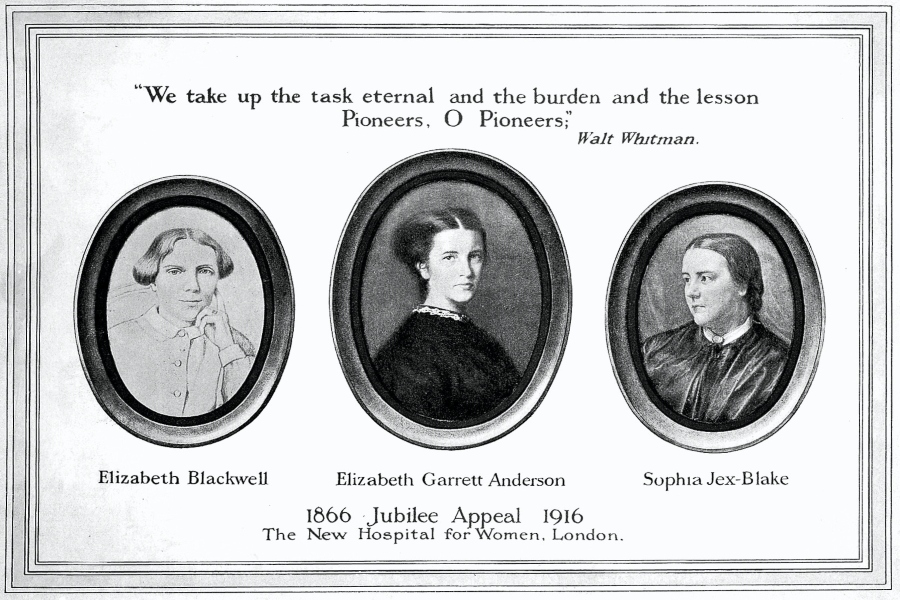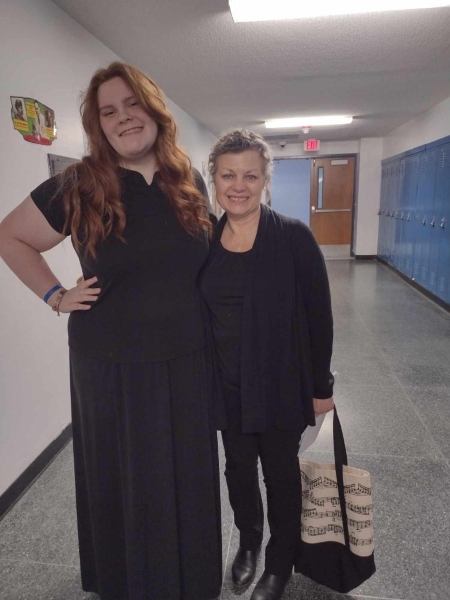Women’s History Month 2022- Providing healing and promoting hope
IMAGE / Wikimedia Commons
Elizabeth Blackwell, Elizabeth Garrett Anderson, and Sophia Jex-Blake are honored after fifty years by the New Hospital For Women in London, England.
What started as a week-long celebration of women’s history in the school district of Sonoma, California in 1978 has since grown both in time, length, and scope of celebration as that week turned into a month celebrated around the United States.
The original event in 1978 included dozens of schools giving informational presentations and hundreds of students participating in a “Real Woman” essay contest.
There was also a parade for the community in downtown Santa Rosa.
This was signed into a national women’s history week by President Jimmy Carter in 1980.
After a few years and fourteen states adopting a month-long celebration, rather than a week or two, Congress officially established March as Women’s History Month.
The theme of this year’s celebration, according to the National Women’s History Alliance, is “Women providing healing, promoting hope.”
This works to recognize the healing and hope women of all cultures have brought to the world and the United States, while also bringing a special focus to female front line workers, caregivers, and medical professionals that have filled a vital role in the ongoing pandemic.
Senior Brooklyn Willhoite is studying as a Patient Care Technician at the Genesee Career Institute on her way to becoming a physician assistant, and she has a special appreciation for this year’s theme.
“I think it’s important that women are on the rise in STEM fields. It makes me feel validated and I’m happy that women around the world are getting the recognition they deserve.” said Willhoite.
One historical honoree (of many) that fit this theme is Elizabeth Blackwell, the first woman to receive a medical degree.
She came from a remarkably progressive family of staunch abolitionists and women’s suffrage activists; Her sister-in-law was even the first ordained minister in a mainstream protestant denomination. While she had their support, she didn’t get much from anyone else.
Her acceptance into the school was based on a majority vote from the students at Geneva Medical College, who cast their vote of approval as a joke.
Blackwell was antagonized by students and teachers during her time at the Geneva Medical College, but eventually earned her diploma and opened a clinic for the poor in New York City.
Her success continued in 1857 when she, her sister, and a protege founded a hospital, the New York Infirmary for Women and Children; They went on to train nurses during the Civil War and open their own medical college (1868), and Blackwell eventually went on to work as a professor of gynecology at London School of Medicine for Women.
Coincidentally, this year also marks the 50th anniversary of Title IX, a law ensuring that all educational programs and activities that receive federal funding must protect students and employees from sex-based discrimination and bans many previously overlooked aspects of gender inequality in education, according to Insight Into Diversity.
Mrs. Marti VanOverbeke, is not only an English teacher at KHS, but also a former college-level softball player whose experience was improved by Title IX.
“I was fortunate enough to benefit from the activities specification of Title IX. First of all, I was able to play softball collegiality. Because of Title IX, my teammates and I had full access to the same facilities as male athletes and had opportunities for competitive scholarships offered through the college.” Said VanOverbeke.
This month can be taken as an opportunity, not only to appreciate the women- family members, teachers, friends, etc.- in your life, but also to take a closer look at the way women are treated in the places you spend your time.
Most importantly, celebrate. Women make up 51 percent of the population in the United States, and while this month we’re focusing on female medical professionals and caregivers, women of all professions and time periods have been moving the world forward for as long as it’s been turning.











